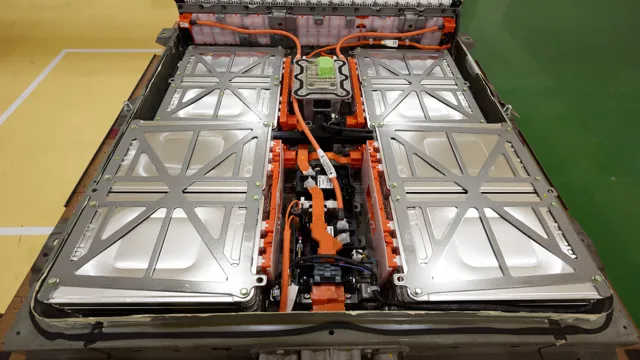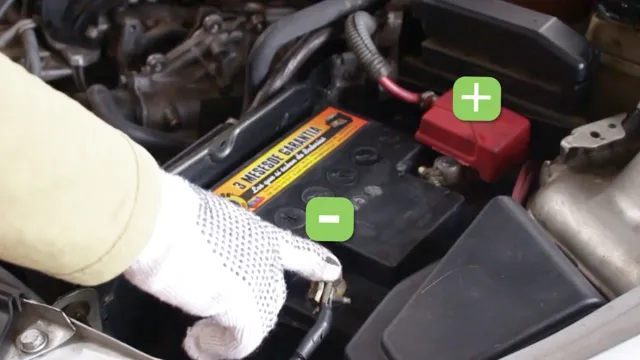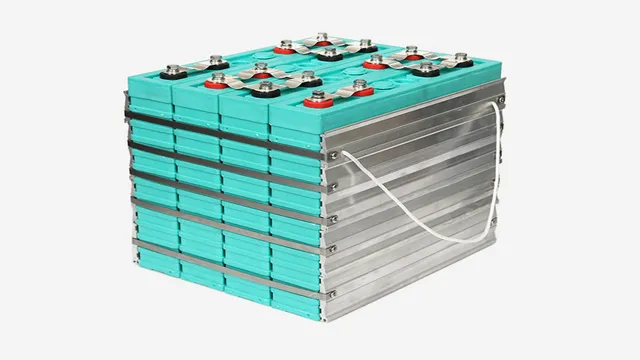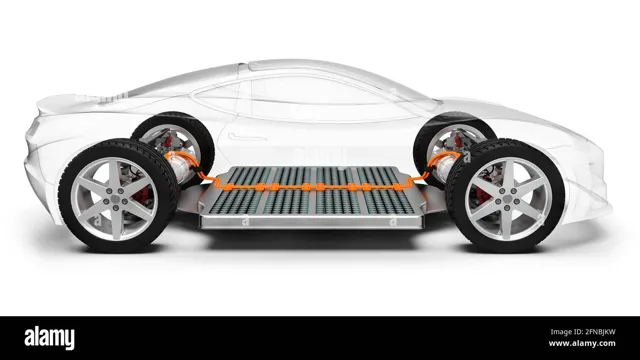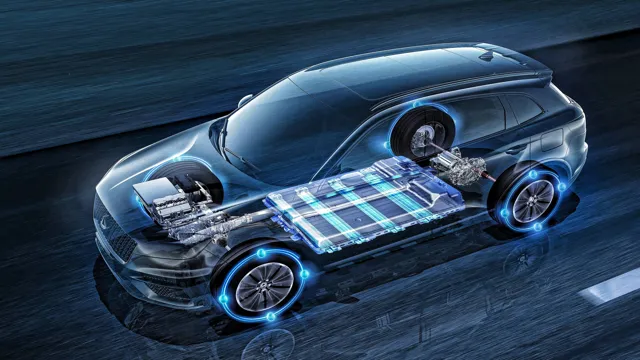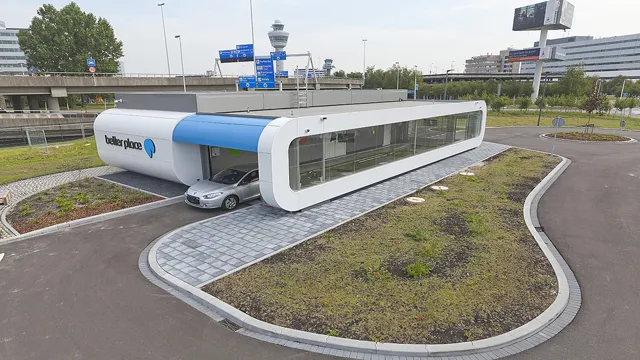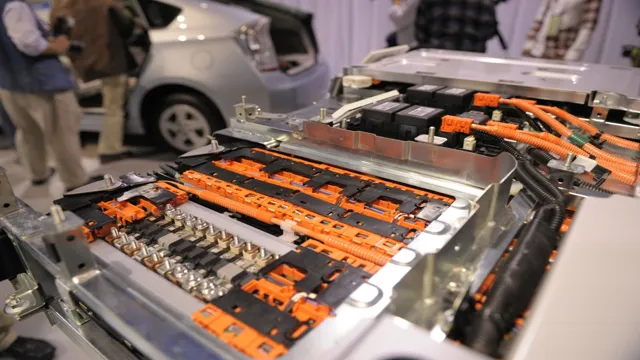Unleashing the Power: Everything You Need to Know About Electric Car Battery Capacity in kW
Have you been considering switching to an electric car? One of the most critical components to consider is battery capacity in KW. It’s the measurement of how much energy the battery can store before needing to be recharged. The higher the battery capacity, the farther you can go on a single charge, which is one of the most important factors to consider when purchasing an electric vehicle.
But how much battery capacity do you need? This ultimately depends on your individual needs and driving habits. For those who commute long distances or frequently travel, a larger battery capacity may be necessary to avoid frequent charging stops. However, for those who only use their car for short distances and have access to charging stations, a smaller battery may suffice.
It’s important to keep in mind that battery capacity is not the only factor to consider when purchasing an electric car. The quality and efficiency of the battery also play a significant role in the overall performance and lifespan of the vehicle. So whether you’re a long-distance commuter or just starting to consider electric cars, make sure you research and compare all aspects before making a final decision.
Understanding Battery Capacity
When it comes to electric cars, battery capacity is a crucial factor in determining the vehicle’s performance and range. Battery capacity is typically measured in kilowatt-hours (kWh) and refers to the amount of energy the battery can store. The higher the battery’s capacity, the longer the vehicle can go without needing a recharge.
However, it’s important to keep in mind that a higher capacity battery also means a heavier battery, which can impact the car’s overall efficiency and handling. While there’s no one-size-fits-all solution for electric car battery capacity, it’s essential to consider factors such as driving habits, daily commute lengths, and available charging infrastructure when choosing a battery with the appropriate capacity. When purchasing an electric car, it’s crucial to research and consider the battery capacity to ensure that the vehicle meets your unique needs.
What is KW and Why it Matters?
KW or kilowatt is a measure of power, while battery capacity refers to the amount of energy stored in the battery. Understanding battery capacity is crucial when it comes to selecting a battery for a specific application. Battery capacity is usually measured in ampere-hours (Ah) or watt-hours (Wh).
This value indicates how much energy the battery can store and how long it can power a device. The higher the Ah or Wh value, the higher the battery’s capacity, and the longer it will last. However, the KW rating is also important to consider as it determines the battery’s power output.
A high KW rating means the battery can deliver more power at once, which is useful for high-performance devices. It’s vital to keep in mind that the KW rating and battery capacity are two different things that both matter when selecting a battery. When choosing a battery, it’s essential to consider the balance between capacity and power output to ensure it meets the specific needs of the application.
Factors Affecting Battery Capacity KW
Battery capacity KW is an essential factor to consider when choosing the right battery for your device or application. Capacity refers to how much energy the battery can store, and it’s commonly measured in kilowatt-hours (kWh). The capacity rating of a battery can be affected by various factors, such as temperature, age, and discharge rate.
High temperatures can cause the battery to lose capacity faster, while low temperatures can reduce its performance. As the battery gets older, its capacity will decrease, which means that it will store less energy over time. The discharge rate also affects the battery’s capacity, as the faster it’s discharged, the less energy it can store.
Therefore, it’s essential to consider these factors when choosing a battery, as they can affect its performance and lifespan. By understanding battery capacity and its influencing factors, you can make informed decisions when choosing the right battery for your needs.
Popular Electric Cars with High Battery Capacity KW
When it comes to electric cars, battery capacity is one of the most important factors to consider. After all, the battery is what powers the car and determines how far you can go on a single charge. Some of the most popular electric cars on the market today have high battery capacities in terms of kilowatt hours (kWh).
For example, the Tesla Model S has a range of up to 402 miles and a battery capacity of up to 100 kWh. The Porsche Taycan has a range of up to 227 miles and a battery capacity of up to 94 kWh.
The Audi e-tron GT has a range of up to 238 miles and a battery capacity of up to 94 kWh. These cars are not only powerful and efficient, but they also offer impressive battery capacities that allow you to go farther without needing to recharge as often.
So, if you are in the market for an electric car, consider looking at the battery capacity in kWh to help you make your decision.
Tesla Model S – 100 KW
The 100 KW Tesla Model S is one of the most popular electric cars on the market. With its high battery capacity, this vehicle offers impressive range and performance that make it stand out from the crowd. This innovative car has a sleek design that combines luxury with functionality.
It delivers an electric driving experience unlike any other, thanks to its powerful electric motor that offers smooth and responsive acceleration. The car is also equipped with advanced technologies such as regenerative braking, which charges the battery while you’re driving. With the Tesla Model S, you can travel long distances without worrying about running out of power.
It’s a reliable and efficient vehicle that’s perfect for drivers who want to minimize their impact on the environment while still enjoying the thrill of the road. If you’re in the market for an electric car, the Tesla Model S is definitely worth considering.
Nissan Leaf – 62 KW
Electric cars have been gaining popularity as people seek to find more environmentally friendly alternatives to traditional gas-powered vehicles. One popular electric car is the Nissan Leaf, which boasts a battery capacity of 62 KW. This high battery capacity allows the car to travel further before needing a recharge.
The Nissan Leaf is a great option for those who are looking for a reliable electric car that offers a good balance between performance and battery life. With its sleek design, spacious interior, and advanced features, the Nissan Leaf has become a favorite among environmentally conscious drivers. It’s no wonder that this car has become synonymous with eco-friendly transportation.
If you are in the market for an electric car, you should definitely consider the Nissan Leaf. Its impressive battery capacity and advanced features make it a top choice for anyone looking to reduce their carbon footprint.
Audi e-tron – 95 KW
Looking for an electric car with great battery life? Look no further than the Audi e-tron with its impressive 95 KW battery capacity. This luxury SUV offers both style and substance with a range of up to 222 miles on a single charge. The e-tron’s electric motors produce a combined 355 horsepower, giving drivers the power and acceleration they need for any situation.
When it comes to charging, the e-tron can reach an 80% charge in just 30 minutes with a fast-charging station. And with its spacious interior and advanced technology, the e-tron is the perfect choice for families or commuters who want an eco-friendly ride without sacrificing comfort or performance. So why not go electric with the Audi e-tron and join the growing community of drivers who know that when it comes to power, sustainability, and style, the e-tron has it all.
Pros and Cons of High Battery Capacity KW
When it comes to electric car battery capacity, there are both pros and cons to having a high KW rating. On the plus side, a higher capacity battery means you can drive for longer periods of time before needing to recharge. This is particularly helpful for those who have longer commutes or are planning road trips.
Additionally, a high KW battery may also provide better acceleration and performance, giving drivers a smoother and more enjoyable ride. However, there are also downsides to high battery capacity. These batteries tend to be heavier and more expensive, which can add to the overall cost of the vehicle.
They may also take longer to charge, which can be frustrating for those in a rush. Ultimately, the decision to opt for a high KW battery will depend on individual needs and preferences, but it’s important to consider both the benefits and drawbacks before making a final decision.
Pros: Longer Range and More Power
One big advantage of high battery capacity in kilowatt-hours (kWh) is the longer range and increased power it provides. With a larger battery, electric vehicles (EVs) can travel farther before needing to be recharged. Drivers can enjoy the convenience of longer trips without worrying about running out of battery power.
Additionally, high-capacity batteries can provide more power, which is useful for accelerating or passing other vehicles on the road. However, there are downsides to consider as well, such as the increased cost of the battery and the added weight it brings to the vehicle. It’s important for EV buyers to weigh the pros and cons of high battery capacity and choose an option that works best for their needs.
Cons: Higher Cost and Longer Charging Time
High Battery Capacity KW has a lot of advantages, but there are also some cons to be aware of before making a purchase. One of the most prominent drawbacks of high battery capacity is the higher cost that comes with it. The higher the KW, the more expensive the battery will be.
However, investing in a high-quality, long-lasting battery can ultimately save money in the long run by avoiding frequent replacements. Another disadvantage is the longer charging time that comes with higher battery capacity. A bigger battery takes longer to charge fully, which can be inconvenient for those who need their devices to charge quickly.
Despite these downsides, the benefits of extended battery life and increased power output make high battery capacity KW a worthwhile investment for many. It just depends on individual needs and priorities.
Conclusion and Future of Electric Car Batteries
In conclusion, the battery capacity of electric cars is measured in kilowatts (kW). This refers to the amount of energy a battery can store and supply to power the vehicle. While it’s important to have a high capacity battery for longer driving ranges, it’s also crucial to consider the efficiency and durability of the battery.
After all, having a witty and clever explanation is great, but having a reliable and efficient electric car battery is even better!”
FAQs
What is the average battery capacity in kilowatt (KW) of an electric car?
The average battery capacity of an electric car ranges from 40 KW to 100 KW, depending on the make and model of the car.
How long does it take to charge an electric car battery with 40 KW capacity?
Charging time depends on the charging station and voltage applied. With a 240-volt Level 2 charger, it takes around 4-6 hours to charge a 40 KW electric car battery from empty to full.
Can the battery capacity of an electric car be upgraded?
It depends on the make and model of the car. Some electric car manufacturers offer battery upgrades, while others don’t.
What is the estimated lifespan of an electric car battery with 100 KW capacity?
The estimated lifespan of an electric car battery is around 8-10 years or 100,000 miles, whichever comes first. The lifespan can vary based on driving style, charging habits, and weather conditions.
